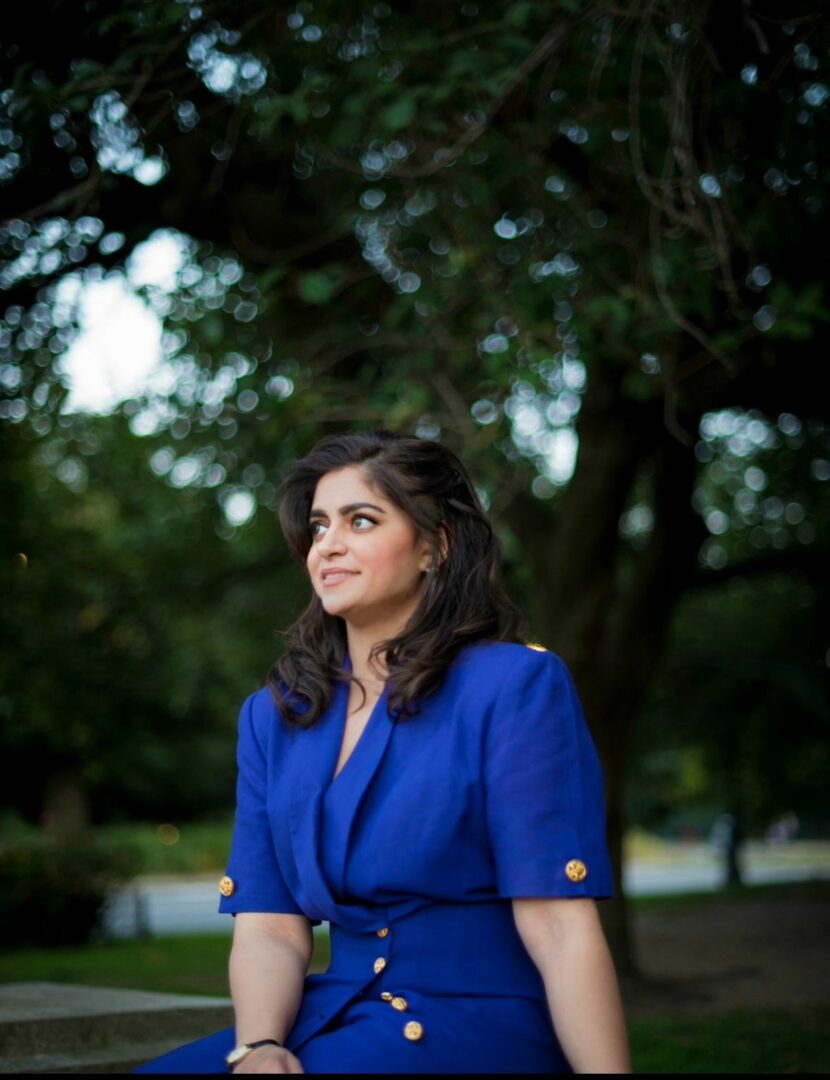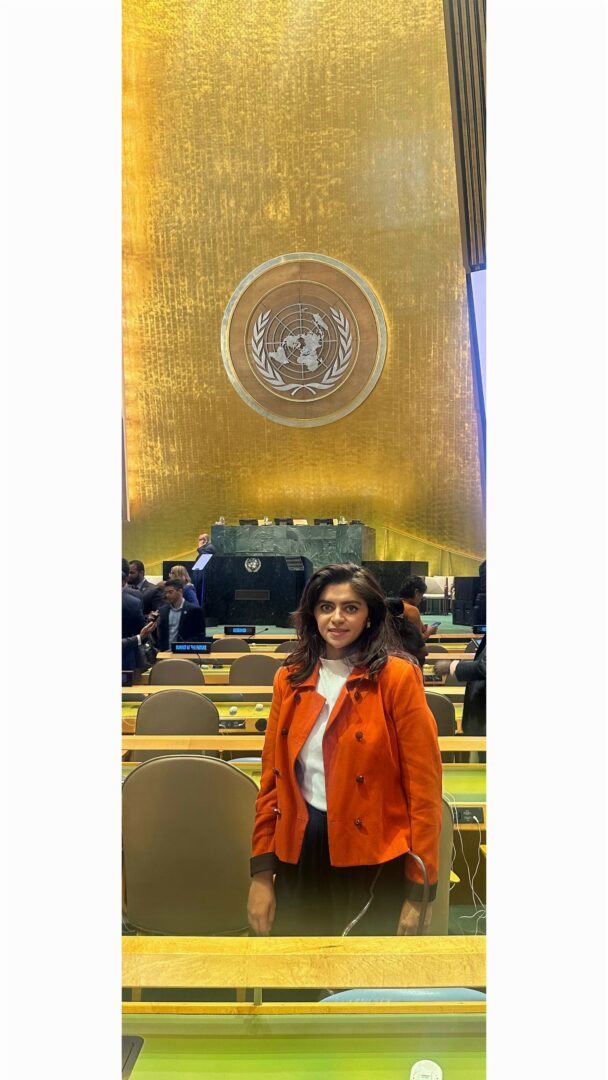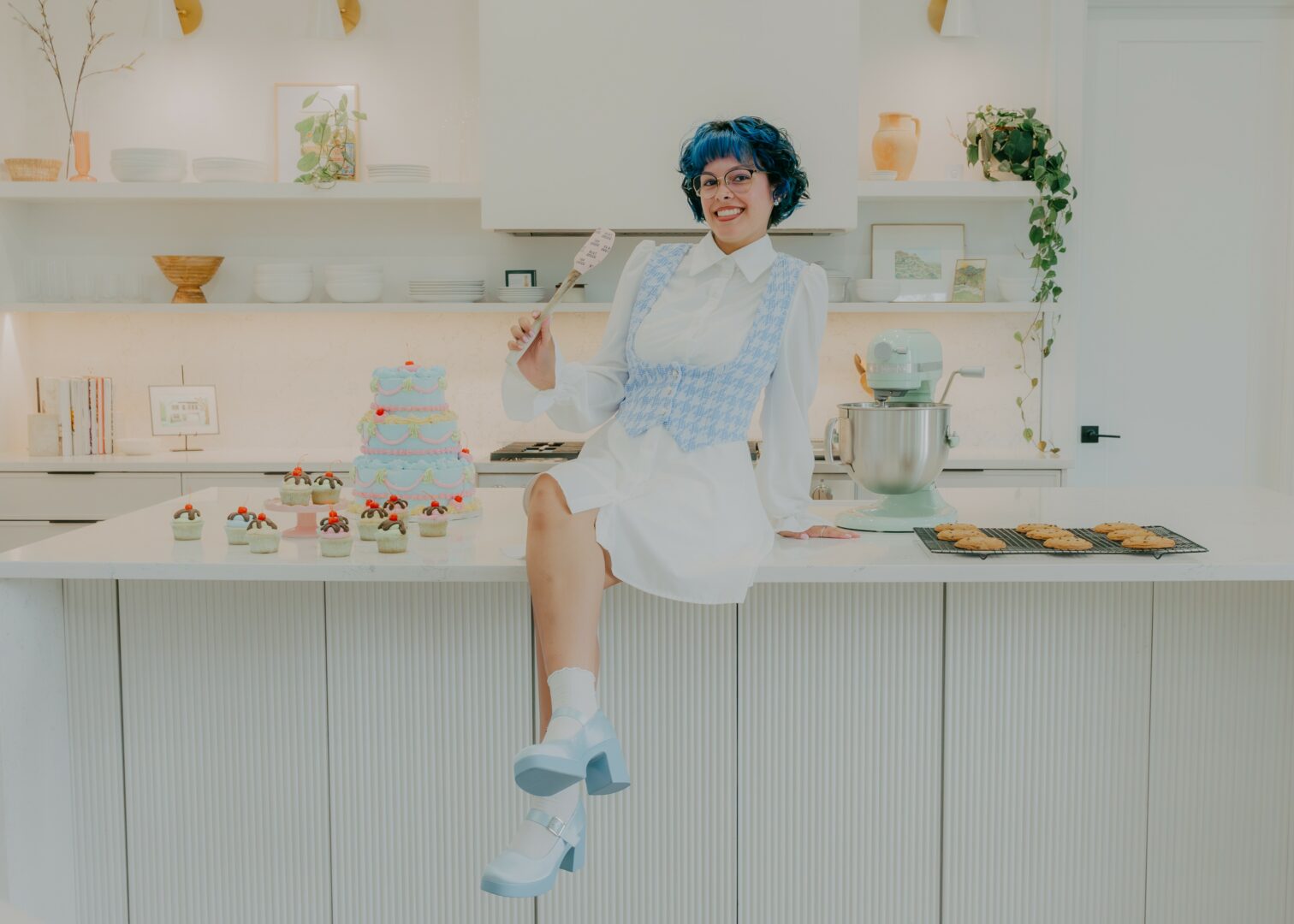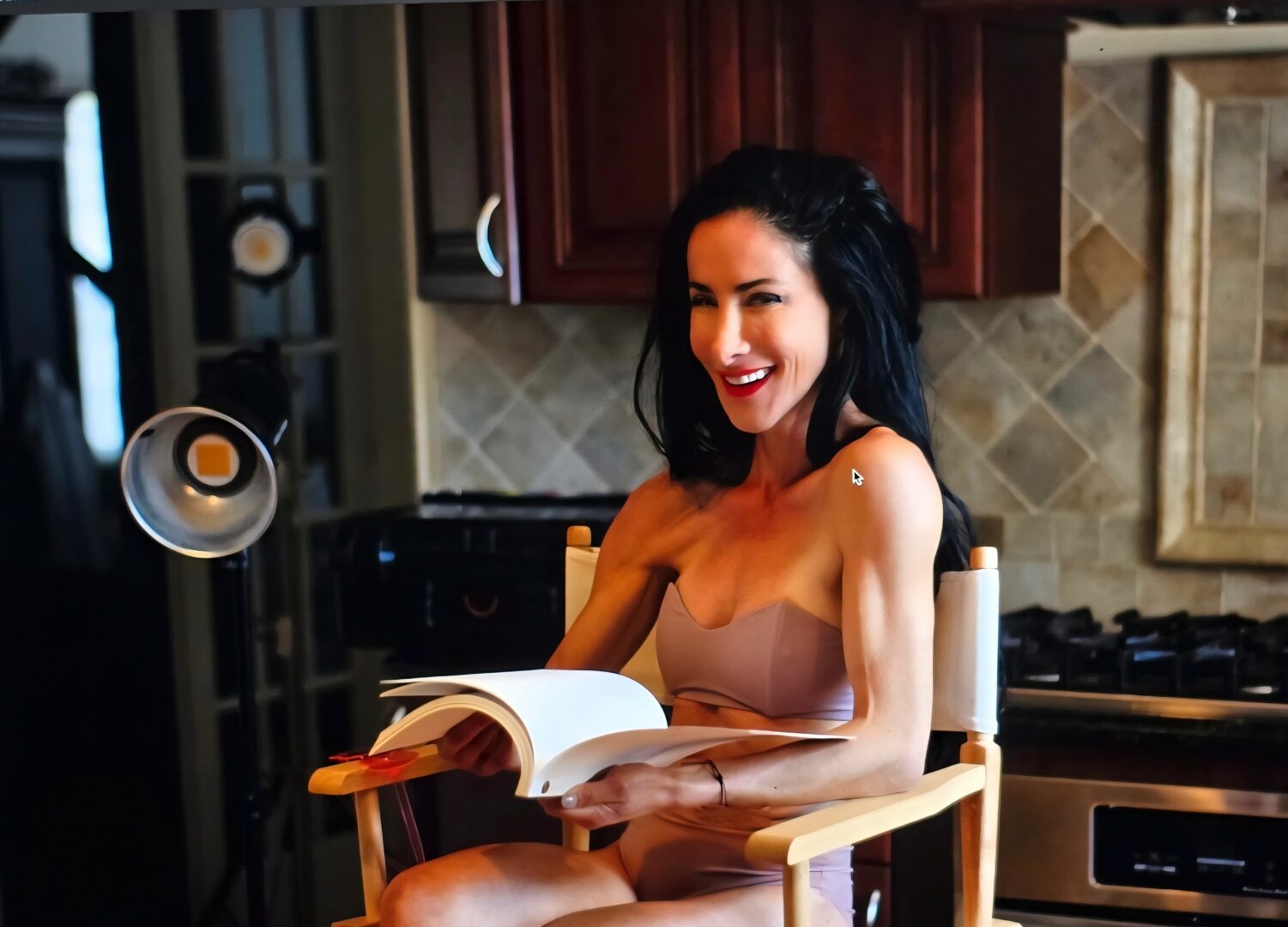We were lucky to catch up with Anoussa Salim recently and have shared our conversation below.
Anoussa, so good to have you with us today. We’ve got so much planned, so let’s jump right into it. We live in such a diverse world, and in many ways the world is getting better and more understanding but it’s far from perfect. There are so many times where folks find themselves in rooms or situations where they are the only ones that look like them – that might mean being the only woman of color in the room or the only person who grew up in a certain environment etc. Can you talk to us about how you’ve managed to thrive even in situations where you were the only one in the room?
As a young South Asian woman who embarked on a career in international relations, I often find myself as the only woman of color in the room. At the start of my career, many of my peers and friends were choosing more traditional paths, majoring in business, medicine, or engineering. I decided to major in Political science and started my first job in the Internation relations field, where there were very few young women of color. This initially left me feeling isolated and uncertain. However, I reframed them as a challenge instead of allowing those feelings to hold me back. I realized that being one of the few women in these spaces wasn’t just an obstacle but an opportunity. If I was going to be one of the few women in the room, I needed to ensure I was heard and respected. I committed to asserting my voice, sharing my ideas with confidence, and proving that my presence was not just a token but a valuable contribution.

Thanks, so before we move on maybe you can share a bit more about yourself?
Currently, I serve as a Director and United Nations Representative for a UN Global Compact member organization. In this capacity, I lead initiatives that align with corporate sustainability strategies and the United Nations’ Sustainable Development Goals (SDGs). My work involves fostering partnerships between the private sector, UN agencies, and Member States to advance sustainable development on a global scale.
While my position is geared toward sustainability, my passion is diplomacy; I’m currently registered for the Foreign Service Officer Test, a rigorous process to become a diplomat that could take up to two years. As a woman of color, I don’t see many women pursuing diplomacy. The Women in Diplomacy Index found that only 20.54% of ambassadors and permanent representatives are women, indicating that women remain underrepresented in top diplomatic posts. While women are increasingly present in fields like technology, law, and business, diplomacy remains an area where we are significantly underrepresented. I am determined to change that by encouraging more women to pursue diplomacy careers and ensuring they have the resources and support to succeed in this critical field.
I’m also very passionate about Women’s education in Pakistan. I’ve collaborated with several NGOs to ensure women in Pakistan receive primary education. Unfortunately, we are very far from a change in Pakistan. Only 13% of girls advance to grade 9. It would take the country at least 50 years to enroll girls in school at the current rate. As a Pakistani American, I recognize the privilege I possess in pursuing an education and choosing a career, opportunities that are not available to many girls in Pakistan. I aim to see more women succeed and break these barriers, especially in my home country, where access to education can transform lives and create lasting change.

If you had to pick three qualities that are most important to develop, which three would you say matter most?
One of my greatest strengths is perseverance, combined with creativity and openness. In international affairs, creativity is often overlooked, with more emphasis on technical expertise and policy knowledge. However, I’ve observed that the most creative thinkers are the ones who drive meaningful change, especially when it comes to solving complex challenges like the Sustainable Development Goals (SDGs). Today’s issues, such as poverty, climate change, and inequality, require a more creative approach. Creativity has always been a natural outlet for me, whether it be knitting intricate patterns or designing my clothes. These activities allow me to tap into a mindset of innovation and patience, which are just as crucial in diplomacy and international development.
While creativity is a great skill, I advise anyone embarking on their career journey is to network and reach out to people. It can initially feel intimidating, however, may of the significant role I’ve had come from developing relationships in my field. Although uncomfortable, stepping outside your comfort zone is essential to making a meaningful impact. Push yourself outside your comfort zone until reaching out becomes second nature. It’s one of the most valuable steps you can take for your career.

Thanks so much for sharing all these insights with us today. Before we go, is there a book that’s played in important role in your development?
Books have always been a vital part of my life; one of the fondest memories I have with books are when my mother took my sister and I to the Manhattan library. A few books that shaped my journey are A Seat at the Table: Women, Diplomacy, and Lessons for the World by Susan Sloan, Daughter of Destiny by Benazir Bhutto, Atomic Habit by James Clear, and many more.
One book that profoundly impacted me early in my career was Atomic Habits. Clear made me realize how habits were affecting my daily life. He discussed the concept of marginal gain, the idea that small changes combined over time can lead to lasting change. It made me confront some of my unproductive habits and, more importantly, gave me practical tools to change them.
Atomic Habits taught me how to structure my day around positive routines, create environments that support my goals, and focus on small wins that build momentum over time. It wasn’t just about improving my work ethic but about reshaping how I approach challenges, productivity, and even setbacks. The book reinforced the importance of persistence and strategic thinking, showing me that success often comes down to the small, intentional choices we make every day.
Contact Info:
- Website: https://www.anoussasalim.com/
- Instagram: https://www.instagram.com/anoussasalim/?next=%2F&hl=en
- Linkedin: https://www.linkedin.com/in/anoussa-salim-342249204/
- Twitter: https://x.com/anoussasalim



Image Credits
Pictures by @naturallynoorphotography
so if you or someone you know deserves recognition please let us know here.




